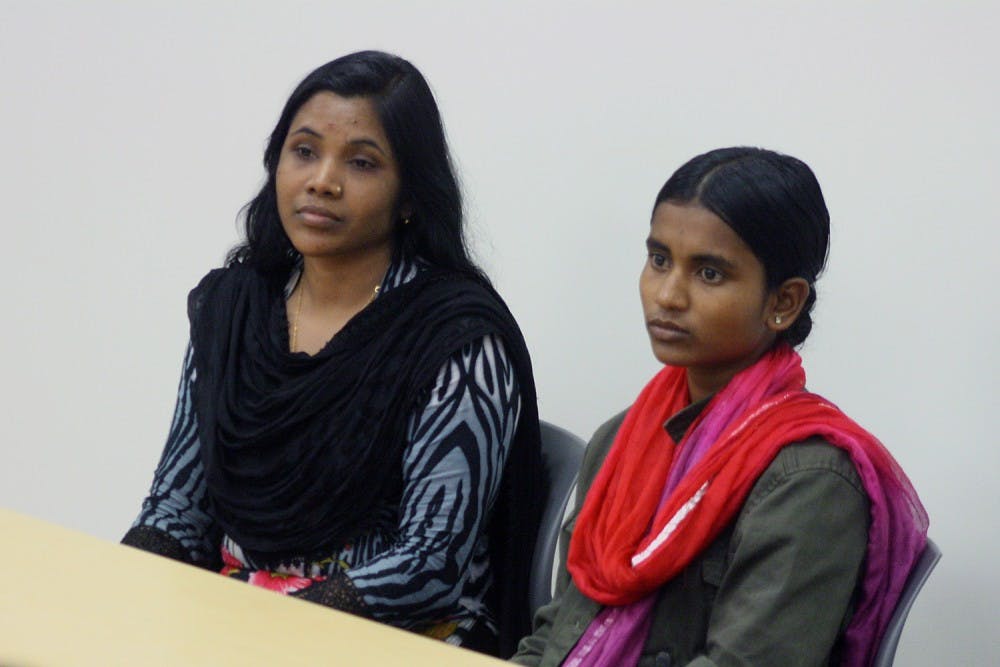One of many Bangladeshi workers on April 24, 2013 who stood outside the factory building that was falling apart, Aklima Khanam refused to go in to her workplace. But management physically abused and threatened to withhold the workers’ wages.
The roof of the Bangladeshi factory building collapsed that day, crushing machines and killing hundreds of Khanam’s coworkers.
Even though Khanam survived the Rana Plaza collapse, she was crushed by a machine and suffered severe head and chest injuries, which still prevent her from working.
Khanam, along with Aleya Akter , general secretary of the Bangladesh Garment & Industrial Workers Federation, sat in the Student Union Tuesday night, sharing their stories through a translator. The speak-out, held by Student Action with Workers , focused on the fight for safe workplaces and living wages in Bangladesh.
Students used Tuesday’s event to bolster their campaign to get Chancellor Carol Folt to require brands that do business with UNC to sign the Accord on Fire and Building Safety in Bangladesh. SAW plans to gather on the steps of South Building on April 24 to garner support for their cause.
After describing the dire working conditions she experienced, Khanam concluded with a call to action.
“We’re making the clothing for students at universities. Does that mean that students want us to die in building collapses and fires?” she said.
Akter spoke about about the causes and consequences of deadly factory disasters in Bangladesh and her struggle to force brands to accept responsibility for the safety conditions in their factories by signing the Bangladesh Safety Accord.




